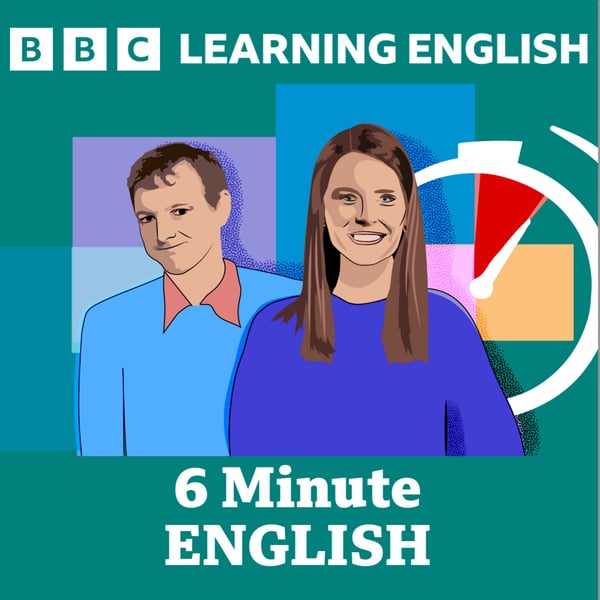How pandemics end
6 Minute English
BBC
4.6 • 1.3K Ratings
🗓️ 4 August 2022
⏱️ 6 minutes
🧾️ Download transcript
Summary
Transcript
Click on a timestamp to play from that location
| 0:00.0 | Hi there, it's Neil from 6 Minute English. If you like this podcast, you are going to love English in a minute. |
| 0:07.0 | Go to BBCLearningEnglish.com and subscribe. |
| 0:12.0 | 6 Minute English from BBCLearningEnglish.com |
| 0:19.0 | Hello, this is 6 Minute English from BBCLearningEnglish. I'm Sam. |
| 0:23.0 | And I'm Neil. |
| 0:24.0 | In March 2020, the World Health Organization, the WHO, declared Covid-19 a pandemic. |
| 0:32.0 | Now, after two and a half years in the shadow of Covid, for many people, travel restrictions are ending, |
| 0:38.0 | and many people around the world are starting their lives again. But not everyone. |
| 0:42.0 | Whether it's because of lockdowns and not seeing friends, or getting sick, even dying, everyone wants to see an end to the pandemic. |
| 0:50.0 | But with cases of Covid infections still in the millions, and doctors warning about new variants of the disease, |
| 0:56.0 | is the pandemic really coming to an end? |
| 0:59.0 | In this programme, we'll be finding out how pandemics end, and, as usual, we'll be learning some related vocabulary as well. |
| 1:06.0 | Of course, pandemics are nothing new. Ancient texts are full of stories of plagues, which spread death and disease before eventually going away. |
| 1:15.0 | In the middle ages, the black death that killed over half of Europe's population lasted for four years. |
| 1:23.0 | It's only with modern vaccines that diseases have been eradicated, completely ended. |
| 1:29.0 | So, Neil, my question this week is, which disease was eradicated in 1977? |
| 1:36.0 | Was it A, cholera, B, polio, or C, smallpox? |
| 1:41.0 | I'm going to say C, smallpox. |
| 1:44.0 | OK, you'll reveal the answer at the end of the programme. |
| 1:47.0 | Of course, the idea that the pandemic might not be ending isn't something people want to hear. |
| 1:53.0 | Most people are sick of worrying about Covid and can't wait for things to get back to normal. |
| 1:58.0 | But as Yale University Physician Professor Nicholas Christakis explained to BBC World Service programme, the inquiry, |
... |
Please login to see the full transcript.
Disclaimer: The podcast and artwork embedded on this page are from BBC, and are the property of its owner and not affiliated with or endorsed by Tapesearch.
Generated transcripts are the property of BBC and are distributed freely under the Fair Use doctrine. Transcripts generated by Tapesearch are not guaranteed to be accurate.
Copyright © Tapesearch 2025.

